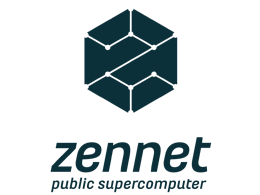
Zennet to Pay for Distributed Computing With Blockchain Tech
For several years now, kindly volunteers have been contributing their spare computing power to vast, distributed supercomputers, all in the name of worthy causes. Spare computing cycles have been used for everything from scanning cosmic radio signals for signs of extraterrestrial life through to calculating climate change scenarios. Now, a new project hopes to let people charge for their spare computing cycles. Traditionally, in a community grid project, one central resource (such as SETI@Home) co-ordinates thousands of volunteer computers in a cloud, relying on people giving up their....
Related News
An initiative that aims to create the world's largest decentralized public ""supercomputer" has just come out of stealth mode. Zennet is a network that allows anyone to sell their idle computation power and anyone to rent it. Using Zennet's infrastructure and the Blockchain, people that want to monetize their computation power can connect and trade with people who are looking to access vast swaths of power at free-market prices. The Zennet initiative is the brainchild of renowned developer Ohad Asor. It lives in the world of distributed and decentralized Blockchain applications, and in the....
An early Beowulf cluster at MIT. Notice that none of the hardware is incredibly expensive by itself, but combined it can do the work of a supercomputer. Distributed computing is a concept that goes back to the earliest days of computers. Beowulf clusters, designed by Donald Becker and Thomas Sterling, have been in practical use since for more than twenty years. One of the first major distributed computing projects was Distributed.net, a project that set out to win a $10,000 prize by cracking the code and finding the key of RC5-56, a 56-bit encryption algorithm. After 250 days of....
Bitcoin and the concept of decentralization made many things possible, such as Bitnation, a decentralized government. I have recently gotten the chance to talk to some people behind Zennet, the worlds first public super computer. 1. What is Zennet? Zennet is a decentralized peer-to-peer platform that lets anyone rent out and profit from their idle computation power, and anyone rent this power. 2. What does it aim to achieve? Zennet aims to create the world’s biggest decentralized supercomputer, accessible to anyone around the globe. 3. How does it plan on doing just that? Zennet will run....
It's difficult to think of the huge computing power dedicated to Bitcoin and altcoin mining, much higher than the combined computing power of the 500 most powerful supercomputers on the planet, without thinking that perhaps all that computing power should be put to good use. The Bitcoin network can be thought of a distributed supercomputer dedicated to a single computational task - maintaining the Bitcoin system itself - which is a very useful task by itself. But there are many distributed computing projects, such as Folding@home and SETI@home, dedicated to important scientific tasks,....
The Blockchain. In an article appearing on the Startup Management website, author William Mougayar argues that the blockchain technology might radically change the way software engineers develop applications in the future. According to Mr. Mougayar, the technology behind the blockchain represents a completely different paradigm in software design. Five concepts come into play that would enable the new computing paradigm. They are the blockchain, decentralized consensus, trusted computing, smart contracts and proof-of-work/stake. These concepts will play a decisive role in developing the....





